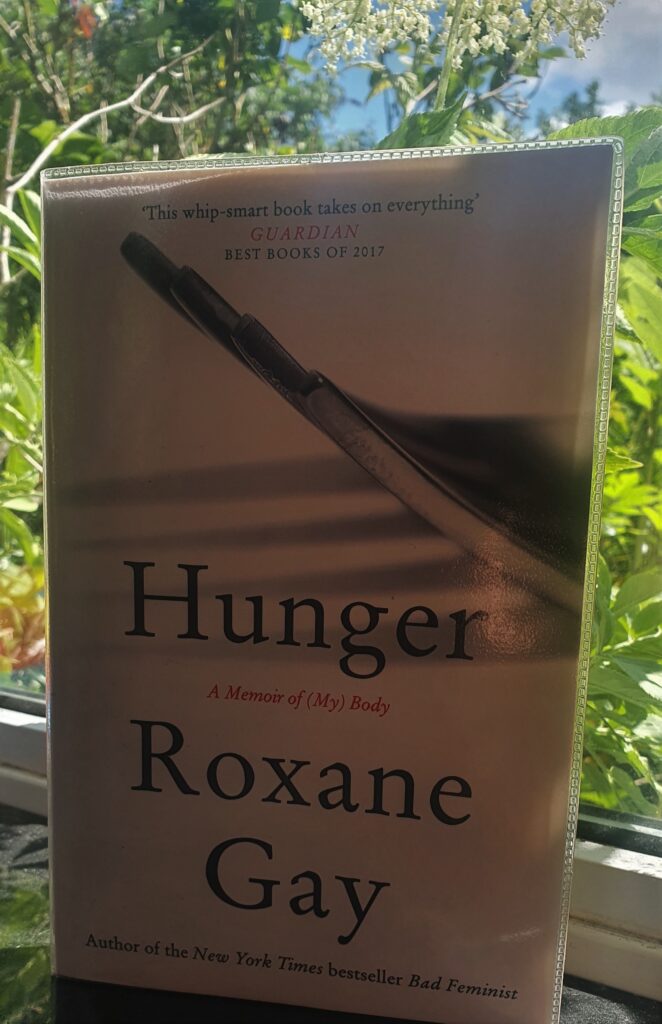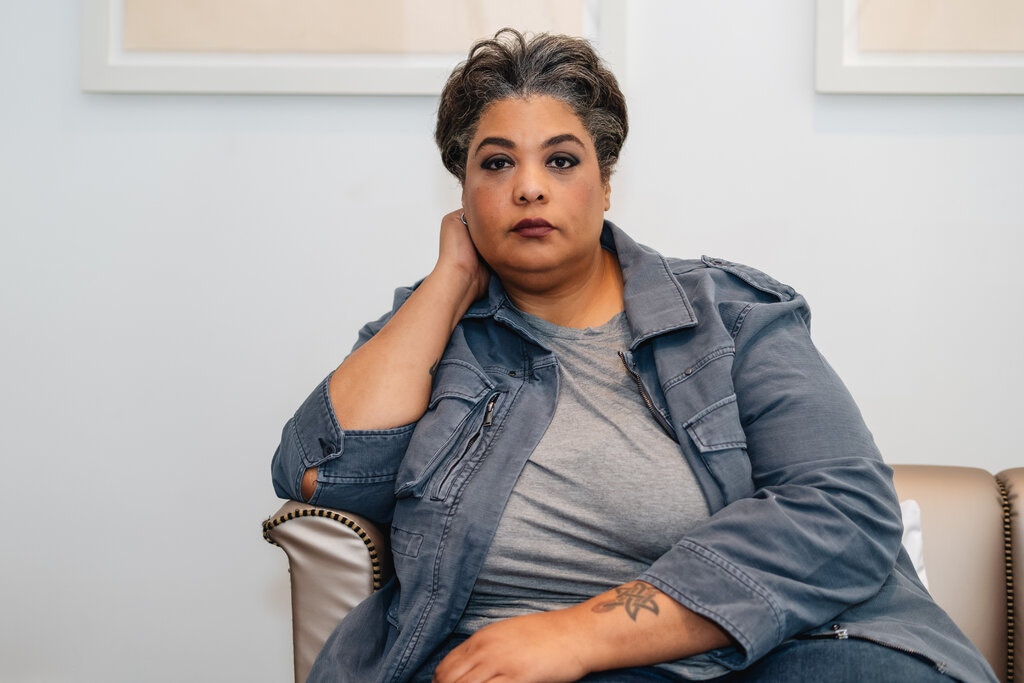
TRIGGER WARNING: This review, of the book Hunger by Roxane Gay contains multiple mentions of rape.
The first thing that strikes me about Hunger, is how real and raw it is. There is no dressing up the truth . Gay is morbidly obese. And she was also gang raped at 12 years old.
There is a link between those two things. And as an adult she can trace her relationship with food back to the trauma of the brutal assault. Gay told no one about the attack and instead took solace in food as a way to repress her feelings. And perhaps unconsciously or consciously she, “Ate and ate and ate to build my body into a fortress.”
Roxanne Gay teaches creative writing at Yale University. But the writing of Gay’s own memoir is controlled, stark and bold. Perhaps reflecting the content of the book. There’s no padding, no qualifying and no extraneous words. Just the brutal truth.
Food as a way to manage feelings not hunger
As this is a counsellor’s take on Hunger by Roxane Gay. I’m familiar with the idea that food, like other substances, can be used to dampen down traumatic feelings. Back in 1978, psychotherapist Susie Orbach wrote Fat is a Feminist Issue. In her book she explored the relationship between feelings, food and women’s relationships with their bodies.
However Hunger by Roxane Gay is different because it provides a first person account of the reality of living in an overweight body. And the casual cruelty, she contends with every day.

Men shouting out insults from cars, people’s faces dropping with disappointment when they realise she’s the author they’re expecting, and being treated with disdain whenever she boards an aeroplane.
The aftermath of rape and sexual assault
But there is another reason why Roxanne Gay’s book is outstanding, and it’s because she dares to tell the whole, confusing truth about being a sexual assault survivor. She thinks obsessively about the perpetrator. Searching coffee shops near where he works, looking at his photo on his company website and occasionally calling his office. There is no neat forgiveness or closure in this memoir, which is so often the case.
She also details the devastating unwanted impact the assault had on her sex life, and her sense of self as a sexual person. She writes, “Does he know that for years I could not stop what he started? I wonder what he would think if he knew that unless I thought of him I felt nothing at all while having sex.”
This honesty isn’t often encountered outside of the therapy room. But Roxane Gay’s memoir provides a stark account of the aftermath of a sexual assault. It shines a spotlight on the impact of trauma on mind and body and Gay’s struggles as she processes the rape and inhabits a body type that is so disparaged by society.
